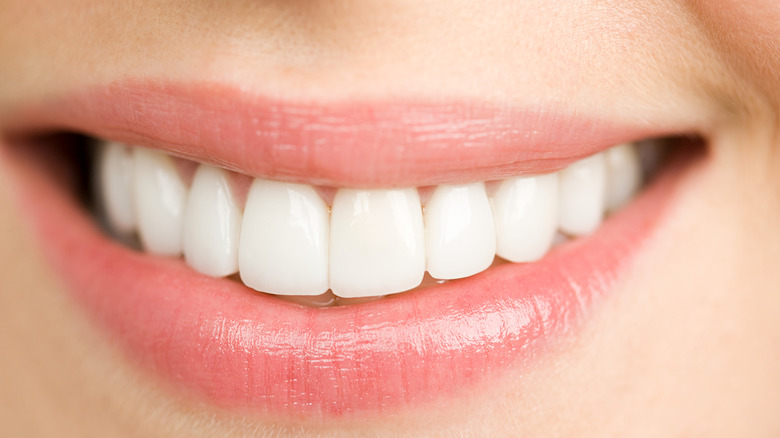In An Annoying Twist, Science Says This Makes Your Face More Attractive
There is perhaps nothing more annoying, patronizing, or downright patriarchal than being told you need to smile. It's a demand usually steeped in male dominance that largely ignores bodily autonomy. However, while the phrases "you should smile more" and "you'd be prettier if you smiled" make our skin crawl, science, unfortunately, backs up the sentiment (if not necessarily the approach).
Study after study has found that smiling makes a person seem more attractive to others. While attractiveness is by no means a requirement to live your life or the end all be all to achieving happiness, it does tend to make certain elements of life easier. For instance, it has been proven that attractive people are more likely to get job interviews, earn higher pay, get elected to office, and be seen as more desirable for relationships (among many other societally awarded benefits). If your everyday life can be so completely altered by your attractiveness, is the secret to an easier or more privileged life as simple as smiling? Call us skeptical.
Why smiling?
While there are many factors that can make a person appear more attractive (facial symmetry, similarities to a parent, societal preferences, etc.) boiling it down to a singular feature or expression can be complicated. This is especially true when you consider that most research explores perceived attractiveness, highlighting the lack of an objective ideal. However, no other single facial expression is capable of boosting your attractiveness quite like smiling does. In fact, one study found that people who smiled often were perceived as being more trustworthy than those who smiled less. (It feels important to mention that this study specifically looked at how women who smiled were perceived by men.) On the flip side, another study was less conclusive when looking at men who smiled more. While smiling had a positive impact on how women rated men's attractiveness when considering long-term partnerships, smiling had no impact on short-term partnership considerations. So, while ciswomen might think of smiling, trustworthiness, and overall attractiveness as necessary for more serious relationships, science shows that many women's standards are lowered when considering a fling or one-off (we fully support a fun fling, especially if it's after a rough breakup).
What is it about attractiveness?
While it would be nice to say that attractiveness is simply a social construct that varies by societal preference, it's more biological than that. In fact, the preference for attractive faces is found in infants who are only a few days old. This means that not only do we have an affinity for attractiveness early on in our development, but it's actually part of our general processing as opposed to a later societal adaptation when seeking out a potential mate.
It is also important to mention that studies have shown that the width of a smile can impact self-assessments of our own attractiveness. While Tyra might have once inspired us to smize, that approach might not be having the intended effect. In one study, the wider a person viewed their own smile directly equated with an increase in their self-perceived attractiveness. In this way smiling can be beneficial for your self-esteem and mental health (which is important for anyone practicing positive self-talk).
Similarly, studies have shown that people prefer to look at happy faces. This happiness is equated with how physically attractive a person is considered. Research has even found that happy facial expressions can compensate for relative unattractiveness (though, once again, categorizing attractiveness in an objective way is difficult to gauge). The bottom line is being happy really does create a glow from within, and smiling allows you to showcase that glow (but only when you feel like it, not when it's demanded).


